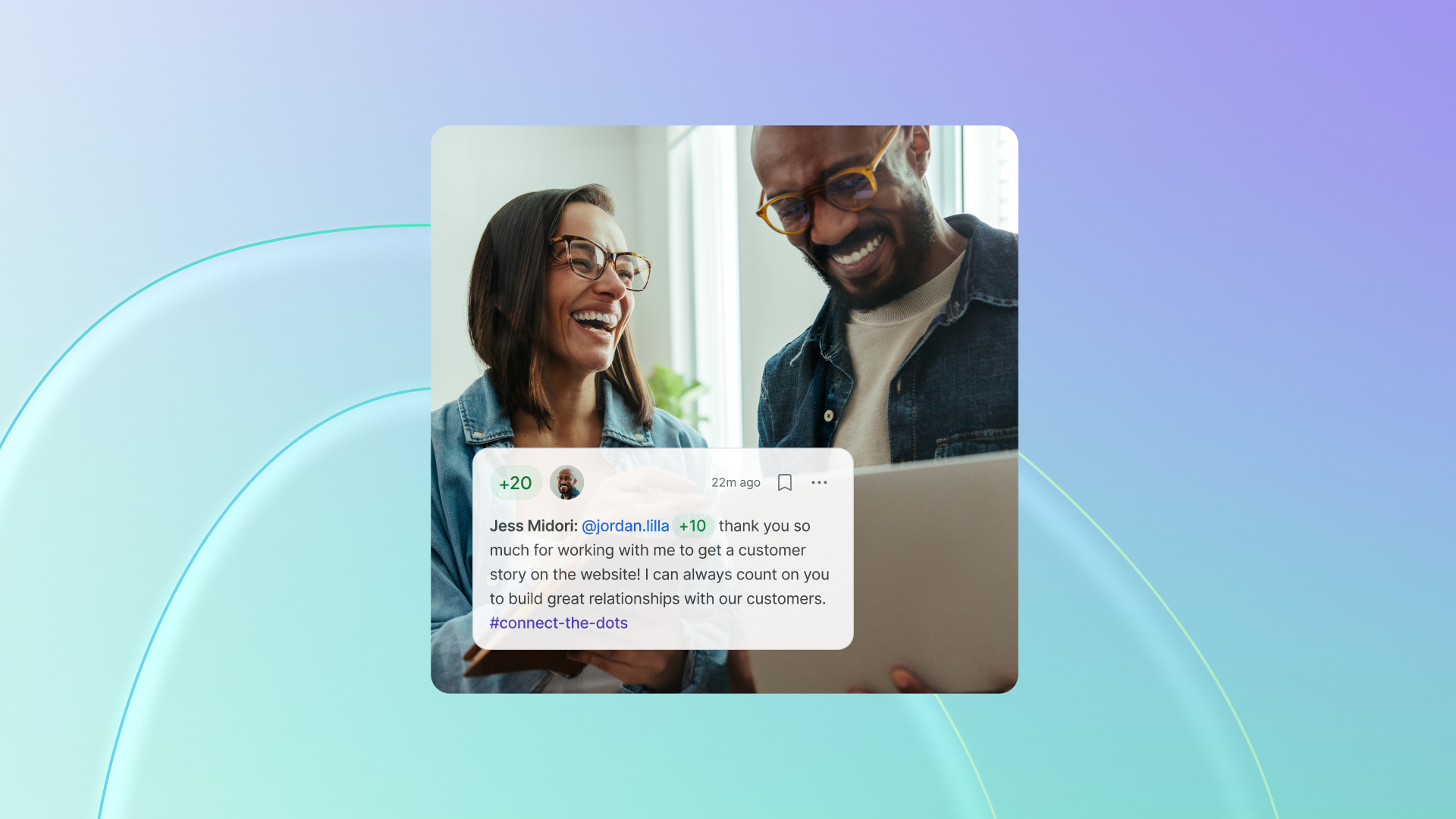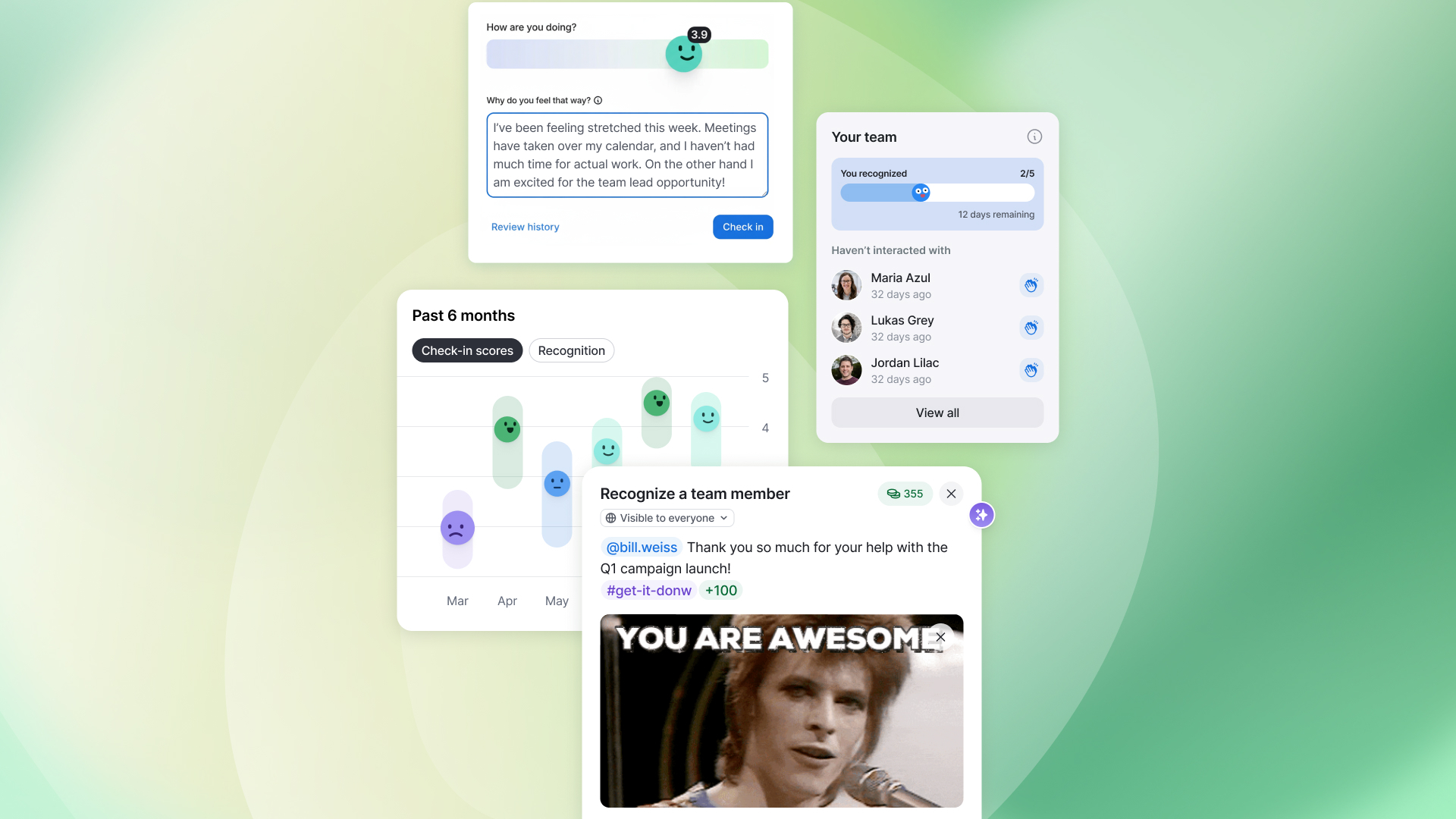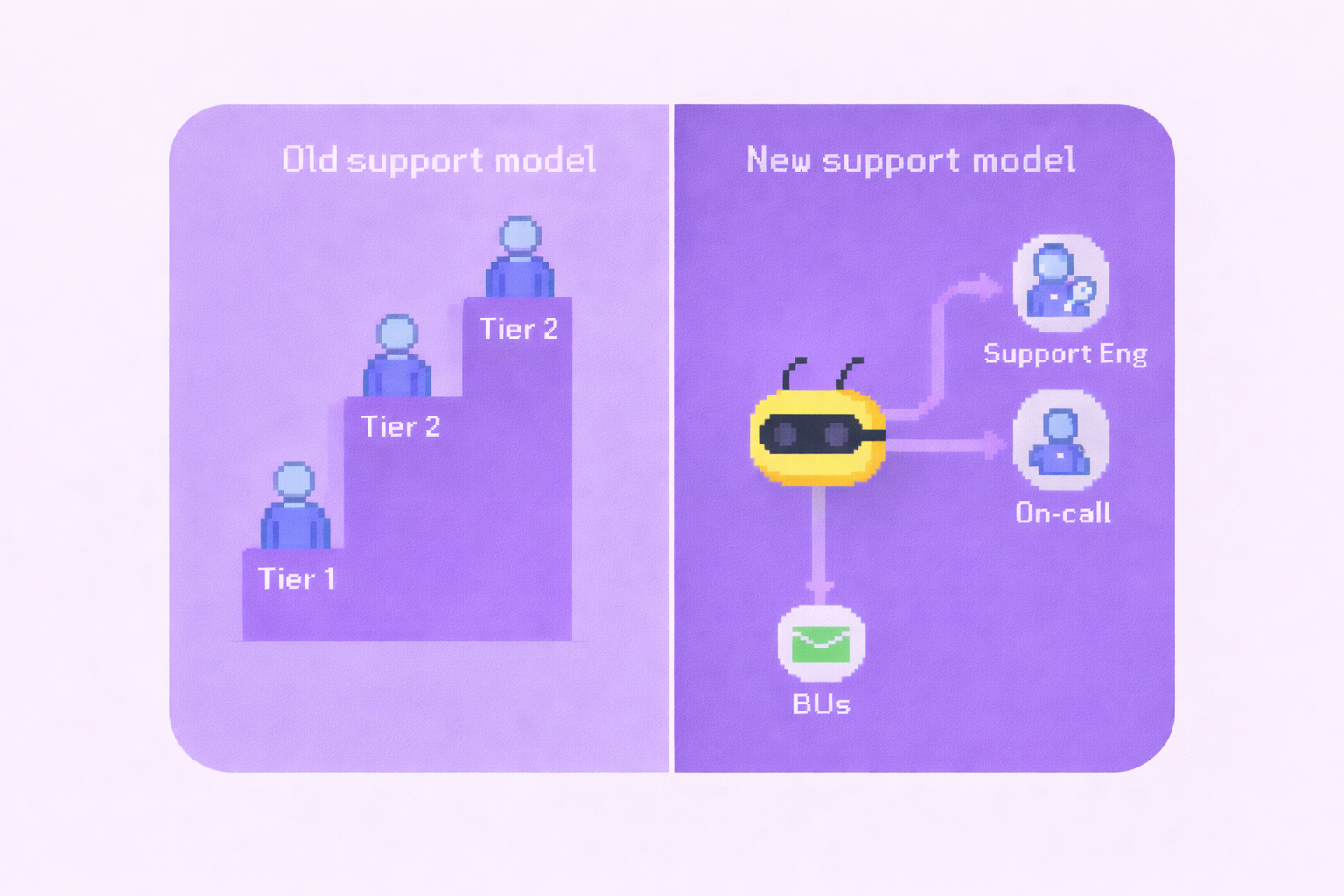Button's Stephen Milbank on Building NYC's Best Place to Work

Building an award-winning workplace is possible in any field, but it requires thoughtful and deliberate decisions about your company culture.
Button just topped Crain's New York's 100 Best Places to Work in New York City list this year, and co-founder Stephen Milbank took some time out of his day to share some insights into what makes Button an amazing place to work and some advice on how you can apply the same principals to your workplace.
Serve a common goal

Milbank began by expressing how happy he is with the quality of the people Button has been able to assemble and keep on their team, and how important a factor that has been in making Button a great place to work.
"They're all highly talented, with enjoyable personalities," he said.
Photo credit: Yoichi Nagano
Another crucial element of the equation is having a common goal and purpose that everyone is engaged in and pushing for.
While everyone brings different skill sets and focuses to the table, we've been able to channel that to serve a common goal. Having a shared purpose—one that's clear—makes it a really enjoyable place to do work.
-Stephen Milbank
Milbank explained that when everyone feels empowered to make meaningful contributions toward shared goals, they're able to bring out the best version of themselves.
Button endeavors to create a structure where everyone feels like they're growing personally, succeeding professionally, and thriving in their personal lives with families and friends as well. "Helping to make people feel fulfilled in the components of their lives where we can, and allowing them the resources to succeed outside work is one way that we've been particularly successful in creating a very happy and productive workplace."
Build a family
Button has grown from a small team of just six to nearly 30 but continues to foster a close-knit sense of community and family. Milbank was quoted by Crain's as saying, "When you join Button, you join a family."
He told me that maintaining a good balance between family life and work is something that the founders envisioned from the beginning:
We wanted to help influence a good work-life balance with our employees. Work is often something that people put on a pedestal to take precedence, giving it an undue pressure in regards to the equilibrium of the demands of their life.
-Stephen Milbank
Recognizing the benefits that strong familial relationships have on all aspects of our lives, from perspective and grounding to health and wellbeing, Button focused on family balance as one of its guiding principles.
This guiding principle helps employees to understand it's not only acceptable but encouraged to take the actions that they need to take in order to ensure their family life is in balance.
Button backs this up with one of the most generous parental support policies in the industry. In the office, Button maintains a family-like atmosphere, as well.
Making the workplace like a family helps people become more empathetic to the volatility of anyone's life. Someone may have events in life that result in a week where they weren't delivering the best product.
If you're close to that person, and you treat them like family, you're going to be more thoughtful towards them. There will be weeks when you cover for them, and there are going to be times when they cover for you.
-Stephen Milbank
Maintain a long-term view
The long-term view is an underlying theme in how Button's founders decided to shape the business and what they've emphasized over time. The effects of these choices Their effects reverberate across all areas.
"If you're always thinking about the immediate short-term deadlines, you fail to recognize what the consequences to that are. Nothing can be more corrosive on an employee's productivity than an unbalanced or unhappy personal life," he said.
If you're creating an environment where someone is never able to go home and relax—where they work all sorts of crazy hours—the other people in their lives are going to be unhappy. This will nag at a person. It's going to distract them, and they are not going to be as efficient or productive or satisfied in what they are doing. Ultimately over the long term, that's going to be more detrimental to the business than not working the extra hours.
-Stephen Milbank
Button takes a long-term view with its unlimited vacation days policy, as well.
Concerned about feedback that unlimited vacation policies often turn into a catch-22, where employees feel less inclined to take time off, Button offers family travel stipends of $500 for each employee plus another $500 if the employee is married or has children.
These stipends help to reinforce that the company really wants employees to take time away from work and that taking that time is just as important as coming to work.
Moreover, Milbank feels that by giving employees unlimited time off, they'll actually take time off when they or their family members are sick. It's a mistaken impression that you're doing something good, or "taking one for the team," by working through being sick. It's generally the opposite.
Some well-meaning policies like grouping personal and sick days can even lead to some fairly perverse outcomes, where employees will come to work sick to avoid losing one of their allotted days off. "There is probably nothing worse than when someone comes in sick and then gets everybody else sick," he mentioned.
We have a pretty open policy where you can take those days off and not put other people at risk. By doing stuff like that, you allow people to be more responsible. They are going to act on the side of caution, which is ultimately better for the organization.
-Stephen Milbank
Prioritize onboarding
The first few weeks of an employee's tenure are crucial for their successful integration. Button helps new hires get up to speed and feel welcomed quickly with a strong onboarding program. "A lot of the tools that we've put out there, and the process in which we onboard employees is a way of helping people get up that integration curve a lot faster," Milbank said.
Within the first week, a new employee gets introduced to every single division of the company. A welcome book introduces each member of the team in a light manner, so that people don't feel as foreign.
We also have someone outside of the chain of command serve as a mentor to help new hires transition to being part of the organization, as well as casual outreach from members of all teams to help facilitate that process of becoming part of the whole.
I think that once you can get someone understanding the information, and feeling comfortable much faster, they can be more productive for the organization.
-Stephen Milbank
Support employee empowerment
Having grown from a team of six to roughly 30, Button has been able to maintain a strong culture as it grows, and Milbank attributes their monthly retrospective process as a major contributing factor to that success.
"About a week after the end of every month, we highlight what went well, what didn't go well, and ideas for improvement. Every member of the team contributes."
He explained how helpful it can be to provide multiple formats for employees to let their voices be heard. "Not only does this help support the underlying goals of the organization as it continually tries to improve and adapt, it also empowers all of the employees to have a voice," Milbank said.
The process also gives everyone free reign to say what they want, and how they want the organization to evolve. In the day-to-day, we have a value of speaking boldly and honestly, but you need to understand that people have different comfort levels regarding taking advantage of a forum.
-Stephen Milbank
It's not just about looking back. Milbank wants the Button team to feel empowered to influence change in the organization's future by contributing to goal setting.
"It's by no means a purely democratic process," he said. "But it is a process we use to understand what they want to focus on, and what the direction of the company should be. By knowing that, people feel closer to the responsibilities that are guiding this organization and feel more powerful about their ownership of the organization."
He stressed that this feeling of ownership within the company and shared sense of purpose ultimately translates into the understanding that maximum contribution is worthwhile.
I think the worst thing that you can do in an organization is make people feel that their influence doesn't matter.
When people feel that their influence doesn't matter, their enthusiasm for contributing declines, and then you just have people working and effectively punching the time clock. And that's exactly what we do not want to create.
-Stephen Milbank
Cultivate an environment of constant learning and development
Button employees are encouraged to attend professional development courses and expand their knowledge at every opportunity.
It's important to be intellectually satisfied—there always needs to be new stimulus. You don't want people becoming static. "Most people who have taken the risk of joining a startup want to improve, grow, and help build the company. They're going on a journey of development, both with the company and for themselves," Milbank said.
People who are well informed about the world around them make better decisions across the board. We are the sum of our various influences and if you aren't trying to expand your knowledge base, then you're going to fall behind.
Most people in this organization aren't going be happy just treading water. They constantly want more, and we need to provide them with more in order to help them be happy and growing.
-Stephen Milbank
Want our newest blog posts straight in your inbox? Sign up for our bi-weekly newsletter!
Parting advice
Button is unquestionably a fantastic place to work, and this sentiment is reflected in its employees, its leadership, and its recent Crain's award. I asked Milbank to share one final, summative piece of advice for others who are working to build their own exceptional company culture.
Be true to yourself. And in that I mean build a culture that represents your personal values—something that you feel like you can live to, want to celebrate, and want to be proud of every single day. Something you're comfortable to share with the world. A lot of people get caught up in what is 'reasonable' or 'acceptable.' What we've tried to do is understand the world around us, and make sure our values are represented in everything we do, and be bold in what those values and choices are.
-Stephen Milbank
If you're inspired by Stephen's story, here's another resource that you might find useful:







